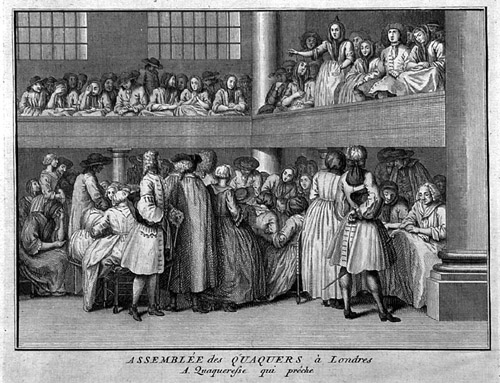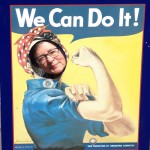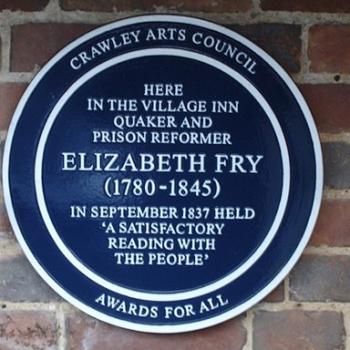#4. Quaker women have equal roles in the Religious Society of Friends (and we always have).
Early Quakers saw no reason for women to have a lesser relationship with God than men. Women were preachers, spoke in worship, and participated in the business meetings of the Religions Society of Friends. Eleven women were among the original sixty people who became itinerant preachers in the 1650s. Mary Fisher, one of these women, traveled to the Ottoman Empire and had an audience with Sultan Mehmed IV, the ruler, after having traveled to Boston where she was imprisoned as a dangerous heretic.
As an accommodation to the realities of the world where wives did not speak against the opinions of their husbands, in the 1670s Quaker business meetings were segregated by gender. Men held their business meeting on one side of the meetinghouse while women held their business meeting on their side. As a result, all members of the meeting were free to speak as moved, and a messenger shuttled notes between the two business meetings as they worked to come to a decision. This practice faded away in the 19th Century.
So it probably isn’t a surprise that some of the first organizers for women’s rights, including Lucretia Mott and Susan B. Anthony, were Quaker women who had learned to speak their truth in front of men and other women in Quaker worship and business.













